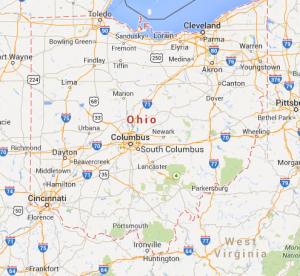On the Road Again
Bruce Lindgren of Independence, MO, USA

They will hunger no more, and thirst no more; the sun will not strike them, nor any scorching heat; for the Lamb at the center of the throne will be their shepherd, and he will guide them to springs of the water of life, and God will wipe away every tear from their eyes. -Revelation 7:16-17
In preparing for an upcoming trip, I’ve been reminded of a quotation from Mark Twain, who was an enthusiastic traveler himself:
Travel is fatal to prejudice, bigotry, and narrow-mindedness, and many of our people need it sorely on these accounts. Broad, wholesome, charitable views of men and things cannot be acquired by vegetating in one little corner of the earth all one\’s lifetime.
I don’t know that Mark Twain was a particularly religious person, but I have found that developing “broad, wholesome, charitable views of [people] and things” is at the heart of the Christian gospel. One of the first challenges faced by the earliest church was the question of whether or not Gentiles should be baptized.
The Apostle Peter, a fisherman and Palestinian Jew, was not a particularly cosmopolitan person. It was on a trip he took to Caesarea, a Roman administrative town built by King Herod the Great, when he had his vision of the unclean animals on a sheet and heard a voice say, “What God has made clean, you must not call profane” (Acts 10:15). Peter’s understanding of who might be included in the blessings of the gospel was greatly expanded.
It may be no accident that Peter was traveling to a town that was much more Greek and Roman than the Galilean fishing villages he had grown up in. Business was conducted in a “foreign” language, and people from all over the world were walking the streets. The trip erased much of Peter’s “prejudice, bigotry, and narrow-mindedness,” and the future of the church expanded greatly.
Closing ourselves off into ghettos, where all of the people are a lot like us, leads to a difficult and violent future. New experiences with new people can transform us into more compassionate, more hospitable people. Closing our wagons into a circle can sometimes feel like a wise precaution, but it may not serve the larger call that we receive through the gospel Jesus brought us.
Prayer Phrase
My ordinary life is a sacred place.
Spiritual Practice
Sacramental Living
“…our everyday ordinary lives are also sacred places, or put another way, the sacred place of our living. As dwellers within the Sacredness of Creation, there is potential to be aware and appreciate the holy within the ordinary. You may remember times when it felt like you were seeing the world through God’s eyes. That’s a good description for what it means to live sacramentally-to sense divine Spirit amid daily activities.” -Jane M. Gardner, “Sacramental Living,” September/October 2019 Herald, p. 5
How are you invited to live sacramentally today?
Today’s Prayer for Peace
Engage in a daily practice of praying for peace in our world. Click here to read today’s prayer and be part of this practice of peace.



